- Did you know that over 70% of behavioral issues in dogs stem from lack of structured dog training with certified professional dog trainers? Unlock the secret to a better relationship with your canine companion and discover expert dog trainers near you.
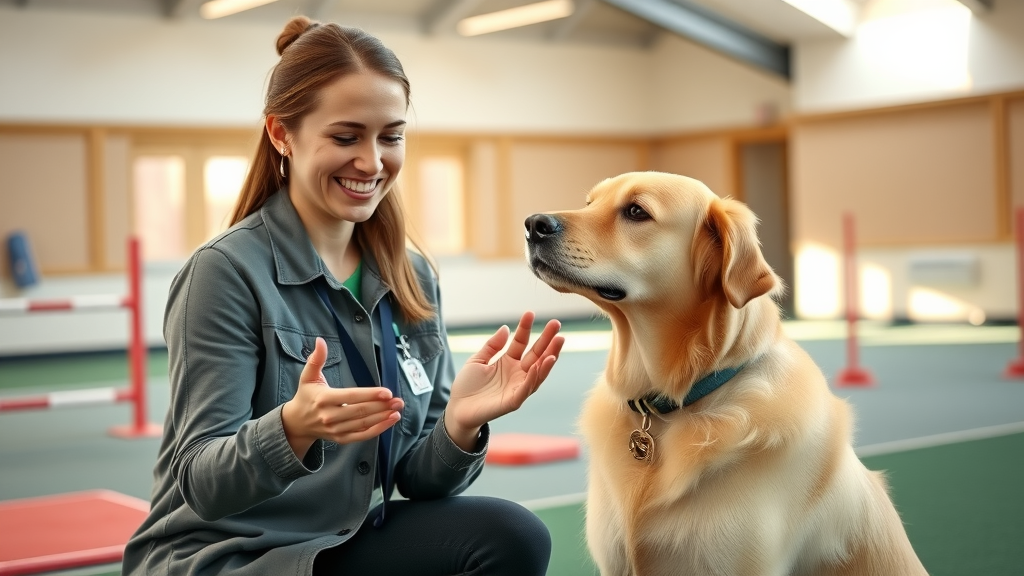
Why Professional Dog Trainers Are Essential for Effective Dog Training Results
- Explore how professional dog trainers transform dog training for all breeds and ages. Real examples of changed behaviors and positive outcomes.
When it comes to dog training , the expertise of professional dog trainers makes all the difference in achieving lasting results with your canine companion. Every breed, age, and background—from energetic puppies to mature rescue dogs—requires tailored strategies and tools that go beyond basic obedience. Professional dog trainers have years of experience and a deep understanding of canine learning, behavior modification, and positive reinforcement techniques, enabling them to address behavior problems at their root.
For instance, many pet owners may turn to group class or online tips with mixed results. However, certified dog trainers teach you a variety of custom methods designed to fit your dog's temperament, lifestyle, and unique needs. Whether you’re seeking basic obedience, advanced training, or specialized service dog training, these professionals consistently deliver not just quick improvements, but lasting positive changes that strengthen the bond between you and your pet. Countless success stories, from rescue dogs overcoming anxiety to family pets mastering advanced tricks, show how transformative the right professional dog trainer can be.
What You Need to Know to Find the Right Professional Dog Trainers
- What you'll learn:
- Key benefits of choosing certified professional dog trainers
- How reputable dog trainers conduct successful dog training
- The impact of dog training for service dogs, rescue dogs, and family pets
- Tips and questions to ask before hiring a dog trainer
Choosing the right professional dog trainers is vital for your success as a handler and for your dog's happiness and safety. Certification, continual education, and a track record of results distinguish reputable trainers from the rest. Look for trainers who are accredited by respected organizations such as the Certification Council for Professional Dog Trainers (CCPDT) or the International Association of Canine Professionals (IACP) . These credentials show that trainers invest in both their knowledge and ethical standards.
Reputable dog trainers offer a range of services, from puppy socialization and group classes to advanced obedience and behavior modification. Trainers with a background in service dogs and rescue dog rehabilitation bring invaluable expertise for families with unique canine needs. When interviewing a trainer, ask about their experience with similar breeds or behavior problems, their preferred training techniques, and the types of success stories they can share. Transparent communication and a clear, science-backed methodology are hallmarks of professionals committed to your dog's well-being.
How to Identify Certified Professional Dog Trainers in Your Area
- The importance of certification councils, review platforms, and vet referrals for professional dog trainers. Avoiding unqualified dog trainers.
Not all dog trainers have the credentials or professionalism needed to guarantee effective dog training . To ensure you select a top-tier expert, start by checking for accreditation through organizations like the Certification Council for Professional Dog Trainers (CCPDT) or the International Association of Canine Professionals (IACP) . These governing bodies hold trainers to high standards of knowledge, ethics, and hands-on experience, often requiring continuing education, rigorous testing, and positive client reviews for membership.
In addition to checking accreditation, leverage platforms such as Google Reviews, Yelp, and the Better Business Bureau to read feedback from other pet owners in your community. Veterinary referrals, local pet stores, or even community dog groups can provide honest recommendations. Be wary of trainers who lack clear credentials, seem reluctant to provide references, or promote outdated or punitive training techniques. Remember, professional dog trainers openly discuss their certification, ongoing education, and transparent training philosophy.
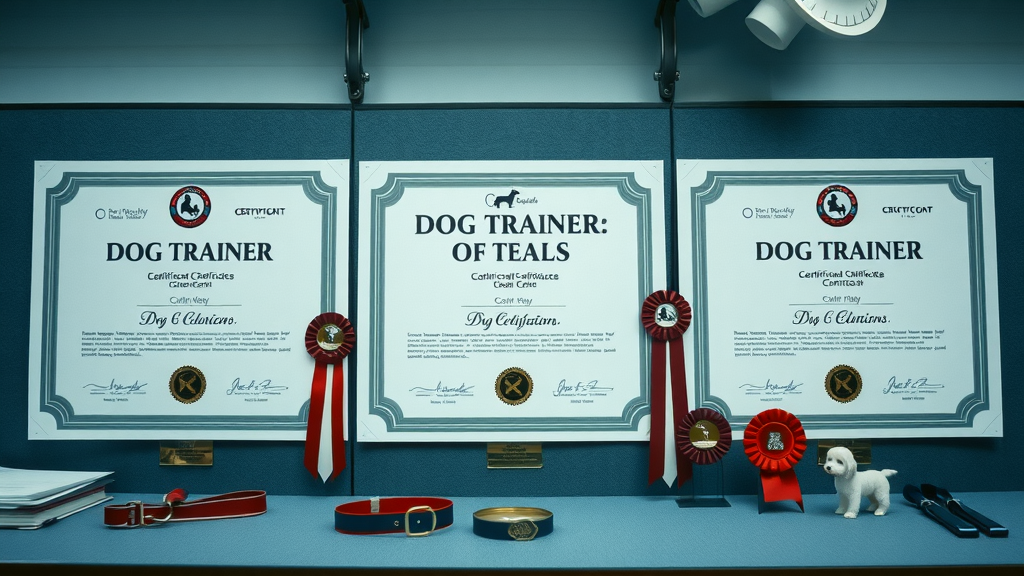
| Organization | Accreditation | Typical Experience Level | Types of Dog Training Covered |
|---|---|---|---|
| Certification Council for Professional Dog Trainers (CCPDT) | Accredited | Advanced | Group classes, service dogs, rescue dogs |
| International Association of Canine Professionals (IACP) | Accredited | Intermediate/Advanced | Group class, one-on-one dog training |
Professional Dog Training Services: From Group Classes to Service Dog Training
- Overview of group class options, puppy training, advanced obedience, and service dog training conducted by professional dog trainers.
Professional dog trainers deliver a broad spectrum of services that cater to dogs at every stage of life and learning. If you’re starting your dog training journey, group classes offer socialization and foundational commands in a dynamic, interactive setting. Puppy training classes focus on early socialization and preventing future issues with gentle, positive reinforcement. As your dog matures, trainers provide courses that cover everything from basic obedience to advanced tricks, agility, and even scent work, ensuring dogs learn valuable skills for real-world situations.
For more targeted needs, private sessions allow for deeper focus on behavior problems such as aggression, fear, or reactivity. Trainers also excel in specialized fields like service dog training, which prepares dogs for crucial support roles in medical, therapy, or assistance settings. This level of training requires a robust understanding of task work, public access etiquette, and the unique bond between a service dog and their handler—areas where certified experts truly shine.
Service Dogs and Specialized Dog Training Programs
- Key differences in training between family pets and service dogs, the necessity of professional dog trainers for effective service dog training, and success rates.
Service dog training stands apart from ordinary obedience work. Professional dog trainers must implement highly structured, step-by-step protocols to teach dogs complex tasks, ranging from guide work for the visually impaired to seizure alerts and mobility assistance. This level of preparation demands not only technical dog training proficiency but also compassion and an understanding of various disabilities. Well-established programs spearheaded by certified trainers show a track record of success, boasting high placement rates and long-standing client satisfaction.
Unlike family pets, service dogs face unique challenges—they need impeccable basic obedience and impulse control in diverse, unpredictable environments. Only professional dog trainers with the right certifications and real-world experience can prepare dogs and handlers for these challenges, ensuring that both can confidently navigate daily life together. Their expertise guarantees the safety, reliability, and effectiveness that these crucial partnerships require.
The Role of Dog Trainers in Rescue Dog Rehabilitation
- Why professional dog trainers achieve notable results with rescue dog behaviors, real-world rescue dog success stories.
Rescue dogs often arrive with histories of neglect, trauma, or inconsistent environments—situations that make their rehabilitation both critical and challenging. Here, professional dog trainers shine by leveraging deep understanding of canine psychology, positive reinforcement, and incremental exposure exercises. Through structured routines and gentle, confidence-building sessions, trainers help rescue dogs overcome significant behavior problems such as fear, aggression, and separation anxiety.
Many trainers share heartwarming stories of once-timid or troubled rescues blossoming into affectionate, well-adjusted pets. One notable transformation involved a dog who, after months with a certified professional dog trainer, transitioned from hiding under tables to confidently joining group classes and trusting new families. These turnarounds don’t just benefit the dogs—they offer peace of mind for pet owners and rescue organizations alike, elevating adoption success rates and overall animal welfare.

Group Classes vs. One-on-One Dog Training by Professional Dog Trainers
- Pros and cons of group class and individual dog trainer sessions for behavioral and obedience training.
Group classes and one-on-one dog training both offer distinct advantages, depending on your goals and your dog’s learning style. In group classes, dogs benefit from social learning, distraction training, and peer motivation, which mirrors real-life scenarios where dogs must listen despite external stimuli. These classes are ideal for basic obedience and for socializing puppies or shy dogs. They are also budget-friendly and create a supportive learning environment for pet owners, who gain perspective by watching other dogs learn.
Individual training sessions are more suitable for dogs with specific behavior problems, such as reactivity or anxiety, or for handlers seeking customized strategies. In these settings, the professional dog trainer tailors every lesson to your dog’s personality and your family's lifestyle, allowing for targeted troubleshooting and faster progress. Ultimately, a skilled trainer will recommend the best approach—or a combination—based on your dog’s needs and your training objectives.
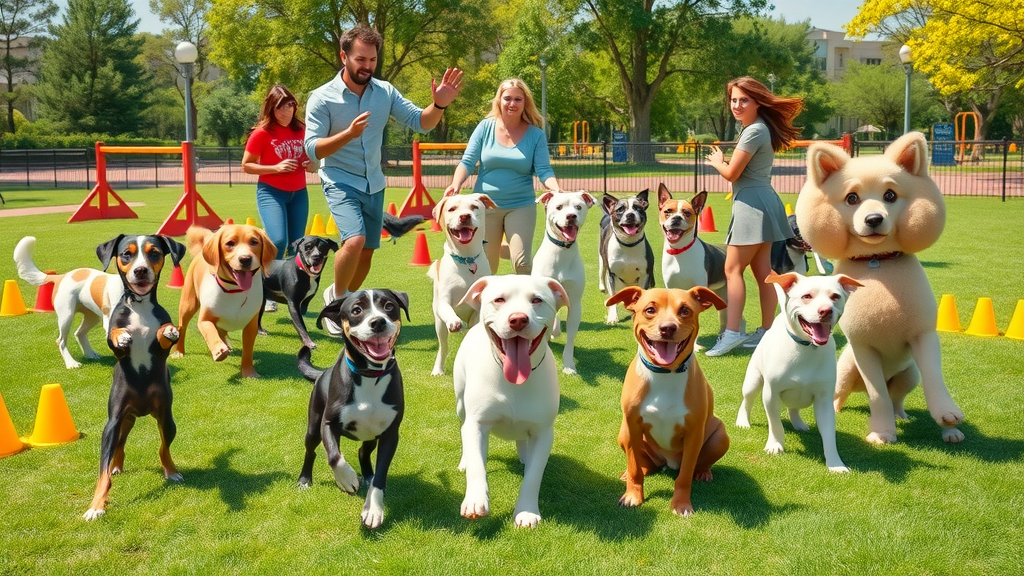
- Top Qualities to Look for in a Professional Dog Trainer:
- Professional certification
- Proven dog training results
- Positive reinforcement techniques
- Experience with rescue dogs, service dogs, puppies
- Excellent client testimonials
How Much Does It Cost to Hire Professional Dog Trainers?
- Average dog training pricing breakdowns for group classes, private sessions, and specialty training like service dogs.
The cost of hiring professional dog trainers varies, reflecting the trainer’s experience, your geographical area, and the type and length of training required. For many pet owners, group classes offer an accessible entry point, with prices typically ranging from $100–$250 for a 6-8 week session. Private training sessions offer more focused attention and can cost $60–$150 per hour, depending on the trainer’s qualifications, years of experience, and services included.
Specialized programs, such as service dog training or intensive behavioral modification, may require an investment of $2,500–$10,000 or more. While this may seem substantial, the long-term value—achieving a dog that is safe, confident, and reliable for years—proves well worth the cost. Always ask for clear breakdowns, written training plans, and any follow-up support included in your package, so you know exactly what you’re getting.
"A certified professional dog trainer not only teaches your dog, but also empowers you as their lifelong handler." – Industry Expert
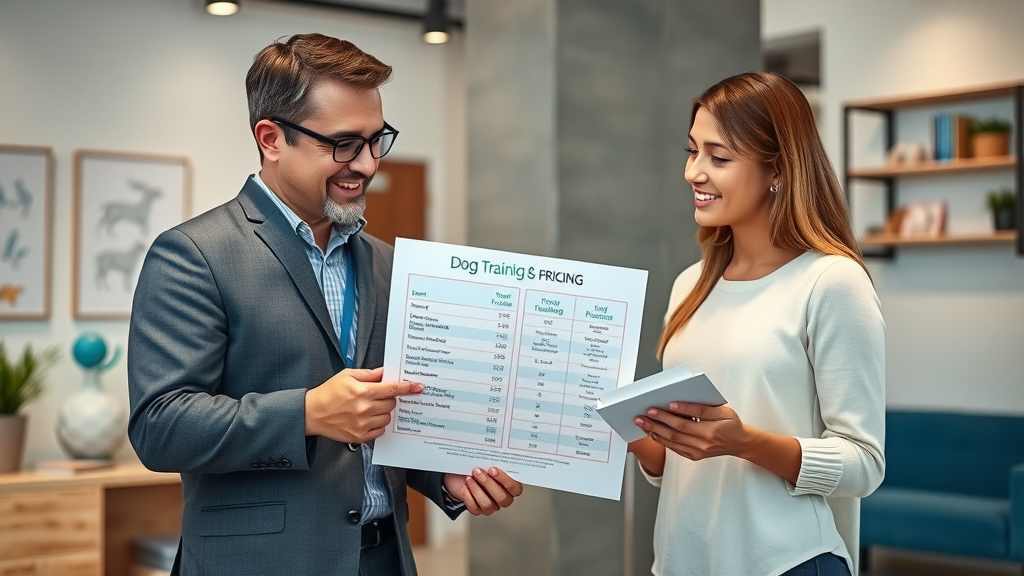
Red Flags: How to Avoid Unqualified Dog Trainers
- Tips on screening, questions to ask, and common warning signs of unprofessional or unqualified dog trainers.
Protect your investment in your dog’s future by learning to spot the red flags of unqualified trainers. Avoid anyone who:
- Refuses to provide proof of certification or references from satisfied clients
- Praises or uses outdated, punishment-based training methods or “quick fixes”
- Has vague or shifting pricing with no clear, written agreements
- Cannot clearly describe their positive reinforcement philosophy or training success stories
- Lacks insurance, formal contracts, or a clear cancellation policy
Aim to interview at least two trainers and ask about their certification, years of experience with dogs, and specialty areas like rescue dog rehabilitation or service dog training. Your ideal trainer should welcome your questions, demonstrate compassion and patience, and provide a detailed, transparent training plan tailored to your goals.
Frequently Asked Questions about Professional Dog Trainers
- Direct answers to top user concerns about dog training, dog trainers, and professional dog trainers.
Are professional dog trainers worth it?
-
Absolutely. Professional dog trainers bring expertise, proven methodologies, and personalized strategies that prevent costly mistakes and ensure behavioral wellness for your pet. Their investment saves pet owners both time and frustration, setting dogs up for long-term success, safety, and happiness.
What is the 7 7 7 rule for dogs?
-
The 7 7 7 rule involves exposing dogs to seven different experiences, in seven different environments, over seven days. This technique helps accelerate socialization and confidence—key components in successful dog training that professional dog trainers build into early puppy and rescue dog programs.
What is a professional dog trainer called?
-
A professional dog trainer may be designated with certifications such as CPDT-KA (Certified Professional Dog Trainer—Knowledge Assessed), or be recognized as a canine behavioral specialist or obedience instructor. These titles signal advanced knowledge and specialized experience in the dog training profession .
Can you send your dog away to be trained?
-
Yes, many professional dog trainers offer board-and-train programs. In these immersive settings, your dog stays with the trainer for a period—often two to six weeks—receiving daily individualized training and socialization that sets a foundation for future learning and faster, reliable results.
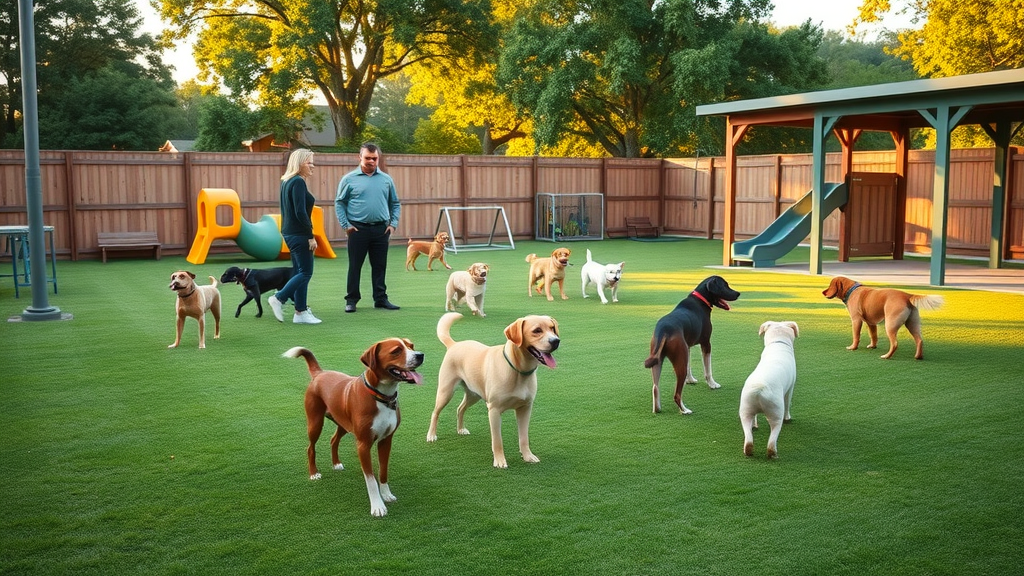
How to Get Started: Connect with Top Professional Dog Trainers Near You
- Take action today: Use our vetted directory to book a session with a certified dog trainer and experience effective dog training firsthand. Boost your dog's potential with help from the best professional dog trainers.
Are you ready to transform your dog's behavior and deepen your bond? Browse our exclusive directory of certified professional dog trainers near you. Discover tailored programs—whether you’re seeking group classes, behavioral modification, or service dog training—that fit your lifestyle and schedule. Book your first session today to unlock a lifetime of confidence, companionship, and well-mannered canine joy.
Your Path to a Well-Trained Dog: The Professional Advantage
- Summing up the advantages of working with professional dog trainers for long-term results, family bonding, and setting dogs up for success.
Working with accredited professional dog trainers is an investment in your dog’s future, your peace of mind, and the strength of your family unit. From early puppyhood to complex service tasks, professional trainers offer guidance, resources, and proven techniques that deliver lasting transformation. Choose experienced trainers for lifelong training momentum and a truly harmonious home.
Ready for your dog’s best chapter? Connect with certified professional dog trainers and watch your pet thrive—starting today.
When seeking professional dog trainers, it’s essential to choose individuals with recognized certifications and a commitment to positive reinforcement methods. The American Kennel Club’s article, How to Find & Choose a Dog Trainer , offers comprehensive guidance on selecting trainers who use humane, science-based techniques. Additionally, the IACP Professional Directory provides a searchable database of certified canine professionals, helping you locate qualified trainers in your area. If you’re serious about enhancing your dog’s behavior and strengthening your bond, these resources will equip you with the knowledge and connections to find the best professional dog trainers near you.
 Add Row
Add Row  Add
Add 





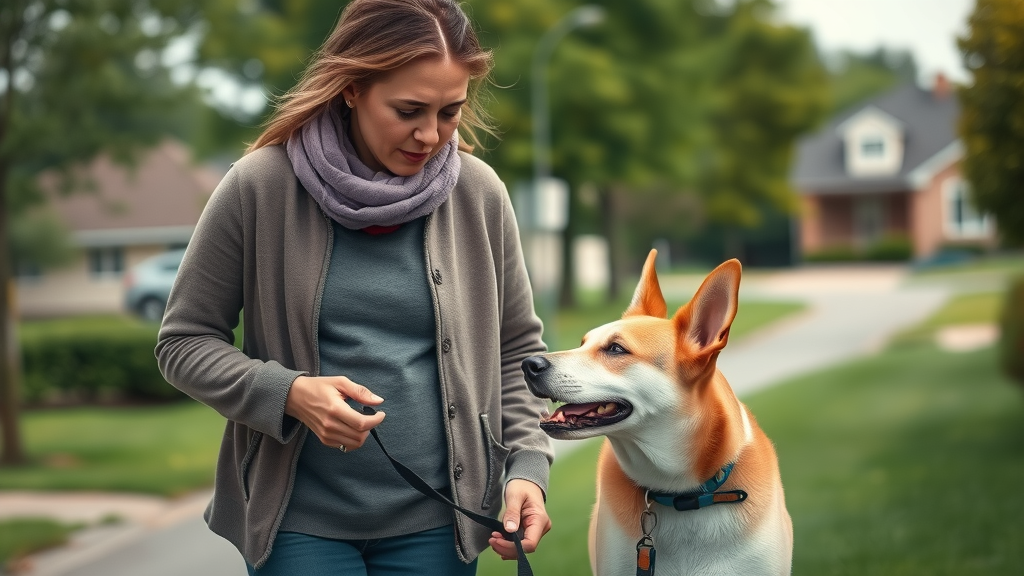


Write A Comment